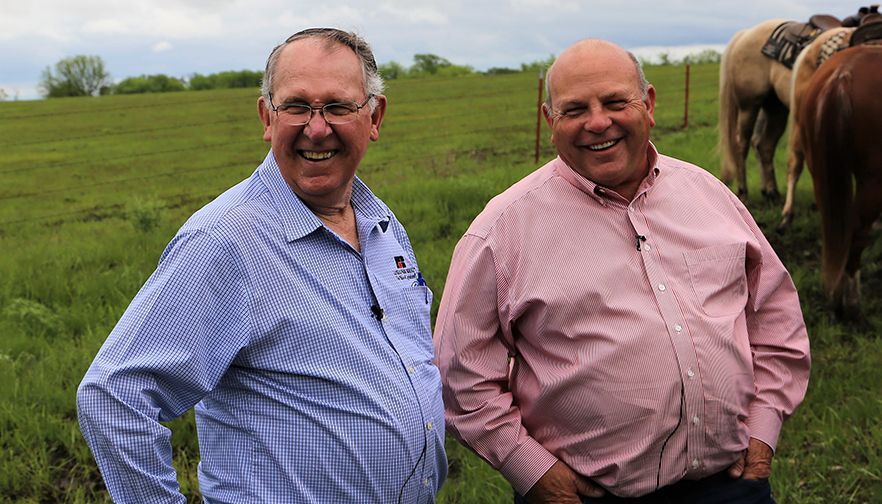Kansas farmers and ranchers face challenges and the president of the state’s largest farm organization admires their sense of optimism.
Rich Felts, a Montgomery County producer, is president of the Kansas Farm Bureau, noted the upturn in grain prices as a result of international trade and that helps growers’ optimism. Felts recently met with Farm Bureau members in southwest Kansas and included a stop in Dodge City. He quipped about how when he usually comes to southwest Kansas the comments he receives from producers is usually “how hot and dry it has been.” This trip he noticed the abundant moisture and mild temperatures. The moisture will go a long ways to help farmers and ranchers with fall crops and pastures, he said.
All of the optimism has also been met with headwinds, he said on June 1.
Producers have many questions about the “30 by 30” program proposed by President Joe Biden, which appears to be a noble goal about conservation, yet hesitation comes from the lack of details on how it can be accomplished. The executive order sets a goal of conserving 30% of United States lands and waters by 2030 and directs a way to measure progress. Farmers and ranchers have been exemplary stewards, Felts said. The administration has stated actions are going to be accomplished by voluntary actions from stakeholders.
Producers need to know what is expected from them, Felts said. They have been told repeatedly by key federal officials that the government will not infringe upon their property rights.
“We are open to listening and discussing what the objectives are but we need to clearly see how to address those objectives.”
The beef market has also been on the mind of producers, he said, and it came on the heels of the May 30 cyberattack at JBS USA, which on June 2 announced plants were fully operational.
“We are in a tough situation and we are an industry where we’ve seen a lot of consolidation in processing in beef and pork. At Farm Bureau we’ve always believed in the free market system but this is a challenging time for all involved.”
Farm Bureau is one of the organizations with a seat at the table for a recent meeting about fairness of prices and he believes that all the organizations represented were listening in good faith. He, too, pointed out the boxed beef prices that were out of line and ranchers and consumers both have noticed.
The beef industry came off a major disruption during the Tyson plant fire in Holcomb, Kansas, in August 2019 that was followed by COVID-19 in 2020. Both of those disruptions hurt beef producers. The beef chain, in particular, has many levels of producers, from cow-calf to backgrounds and feedyards. They all manage their resources tightly and timelines closely and disruptions set off chain reactions.
Plus, the packing industry has been hampered by labor as a result of COVID-19, he said.
The key is to increase competition because that benefits beef and pork producers, he said, and requires open dialogue. He has also said it was important for the federal government to follow up on investigations.
Felts remembered 15 months ago when he went to Washington, DC, as the COVID-19 pandemic was starting to quickly heat up and by the time he and his delegation had finished their work and went home the pandemic was upon the country.
The nature of Kansas producers in open spaces and the pandemic was slower to hit rural areas but it impacted their family’s health, workers, and suppliers as well as the nation’s economy.
Dave Bergmeier can be reached at 620-227-1822 or [email protected].


